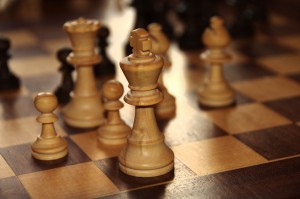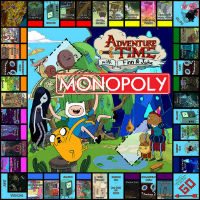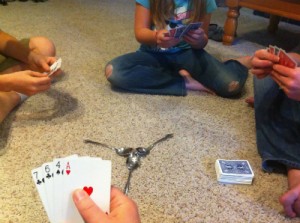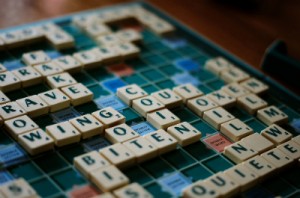Get your child off the iPad, away from the flat screen and into the parlor for some quality time with these educational games. Tabletop games have a lot of benefits over virtual games: you can interact with your child without distraction and you can use the time to check-in. Even harried parents should set aside an evening every week to “turn off” the technology and “turn on” the conversation, and parlor games can be an excellent facilitator.
 Logic Games: Chinese Checkers, Chess and Backgammon
Logic Games: Chinese Checkers, Chess and Backgammon
What do these games all have in common? Chinese checkers, chess and backgammon all rely on logical thinking and foresight. Children are required to think ahead and to think critically, skills that will serve them well throughout their lives and in their studies. Of course, not every child wants to be told to set up the chessboard every evening, so some variety can be good!
The beauty of these classic games is that they can be tailored to your child’s age level. You can adapt your playing style to suit their needs and let them figure their strategies out on their own. As your child grows older, and even into adulthood, you two can still enjoy playing these games. Games like chess have been shown to raise IQ and increase creativity and memory.
Pros: builds mental acuity, concentration, memory and strategy.
Cons: requires a significant amount of attention; may not be suitable for very young children.
Strategy Games: The Game of Life and Monopoly
The Game of Life and Monopoly are both strategic board games that involve some element of chance. Your children will need to think carefully about their moves to ensure success; they will need to weigh out benefits and drawbacks of each action, forcing them to work out their decision-making muscles.
 Not only do these games serve as a mental challenge, but they also open up many topics for conversation. Throughout Monopoly, you can discuss proper finances with your children and help them come to their own conclusions regarding responsible behavior. In the Game of Life, you can discuss university, employment and even marital choices in a light-hearted environment.
Not only do these games serve as a mental challenge, but they also open up many topics for conversation. Throughout Monopoly, you can discuss proper finances with your children and help them come to their own conclusions regarding responsible behavior. In the Game of Life, you can discuss university, employment and even marital choices in a light-hearted environment.
These strategy board games aren’t just fun, they are educational in a deeper way: they can help you connect with your child and teach them about real life issues. As an introduction to these types of games, try something simpler such as Candyland.
Pros: serves as a conversational opener, teaches decision-making skills.
Cons: each individual game may take quite a while.
Card Games: Go Fish, Old Maid, Blackjack, Poker
 A simple deck of cards can be used for a tremendous variety of card games. Young children can use Go Fish and Old Maid as an entertaining pastime that shows them the basics of competition and creativity. Through a simple card game, children can learn about rules, pattern recognition, probability and more.
A simple deck of cards can be used for a tremendous variety of card games. Young children can use Go Fish and Old Maid as an entertaining pastime that shows them the basics of competition and creativity. Through a simple card game, children can learn about rules, pattern recognition, probability and more.
More complex games such as Blackjack and Poker can be used to teach your child strategy, risk and even the ability to read emotional nuances in other people. While some believe that these games could potentially encourage gambling, there is no evidence for this. In fact, many believe that teaching children poker can aid in mental and social development.
Pros: simple and easy, teaches math, probability, statistics and strategy.
Cons: may not capture the attention of some children, requires significant concentration skills.
Word Games: Scrabble, Boggle
 Word games are an ideal way to build your child’s vocabulary and their interest in the English language. Games like Scrabble force your child to think both logically and creatively in order to succeed. There is also a significant strategy component.
Word games are an ideal way to build your child’s vocabulary and their interest in the English language. Games like Scrabble force your child to think both logically and creatively in order to succeed. There is also a significant strategy component.
Boggle comes in a version specifically made for younger children called Boggle Jr. All versions of Boggle improve word recognition, vocabulary and on-your-feet thinking skills. The Boggle Jr. version comes with smaller words, such as “cow” and “dog,” which are perfect for children just learning to read.
Pros: accessible to younger children, teaches important vocabulary skills.
Cons: may not be interesting to all children.
Selecting the Right Board Game for Your Child
The choice of which parlor game to play may not be as important as simply playing a parlor game to begin with. Try out multiple types of game with your child and vary your game choices to keep parlor night interesting. It isn’t the board game itself that is important; it’s the time that you spend together.
“in collaboration with David Taylor”
Leave a Reply